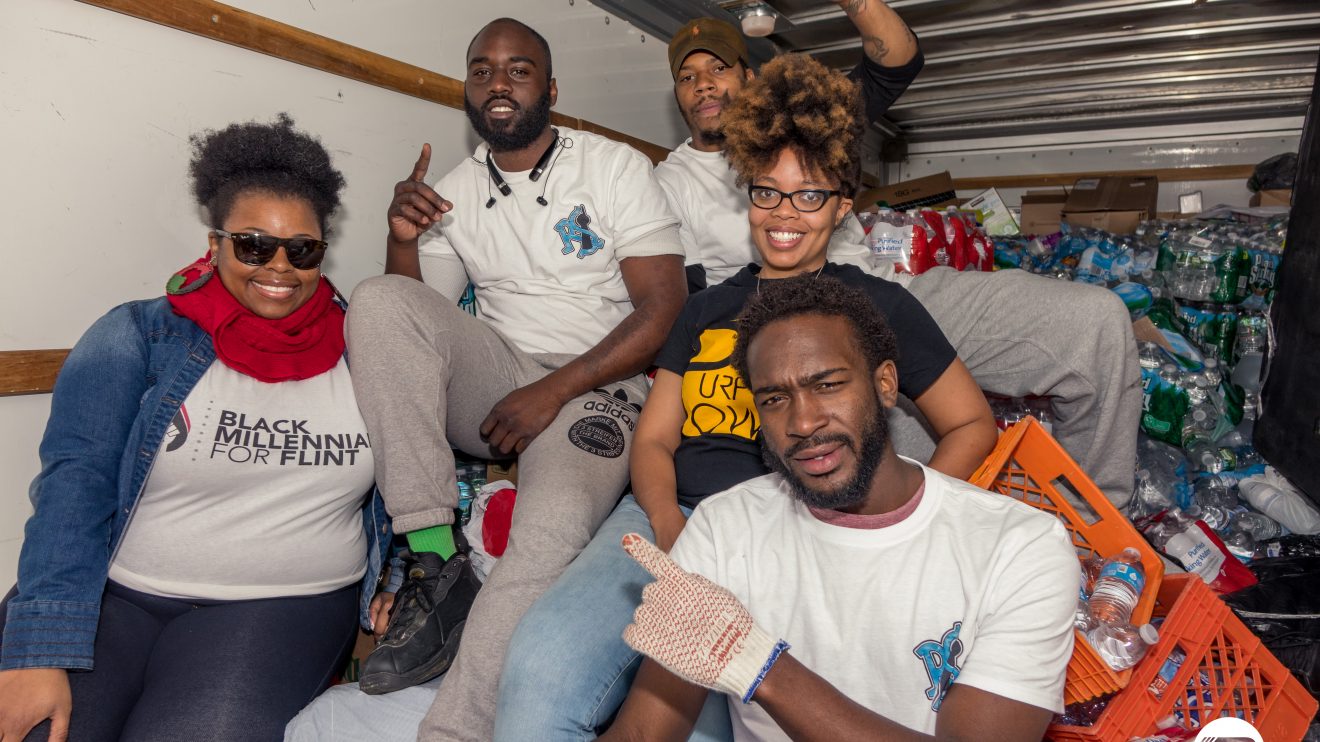WASHINGTON D.C. — The first mention of Flint, Michigan usually brings to mind General Motors, as it once was the home of one of the largest motor vehicle plants in the country. As chronicled by filmmaker Michael Moore in the 1989 film, “Roger & Me,” when GM downsized its operations in Flint, leaving thousands upon thousands unemployed, the city fell into great financial ruin. By 2011, the state decided to take over the city’s finances in an attempt to help get its people back on track.
A Crisis Brews
As noted by CNN, in one of the first attempts to get back to some financial security, the city announced in 2014 that it would build a new pipeline to “reduce the water fund shortfall.” In preparation for this construction, the city changed its water source to the Flint River. Almost immediately Flint found itself facing a new crisis: contaminated water. Nearly six years later, the problem remains.
As the water source was changed, residents quickly started filing in reports of complaints. From the taste, to the color and the smell, it was apparent to the people of Flint that something was wrong. Within months, water boil advisories were put into place but it wasn’t until 2015 that the Environmental Protection Agency (EPA) announced that tests showed dangerous levels of lead were present in the water being served to the people of Flint. Again, the city found itself in despair, tied up in blockades of legislation and politics. But according to Michelle Mabson, staff scientist at Earthjustice, an environmental law firm, and volunteer director of advocacy for Black Millennials For Flint, a D.C.-based grassroots environmental justice group founded in 2016, “there is hope.”
“Our organization has understood that lead is an issue across the country in a lot of cities where black and brown communities are mostly impacted because the last legacies of lead are in our cities and in our homes and in our pipes that have yet to be replaced,” said Mabson, also a member of the NAACP’s Climate and Environmental Justice Committee. “In D.C. some of the work that we’ve been really happy and excited about is the fact that D.C. passed in 2017 a Childhood Lead Amendment Act which essentially requires testing of drinking water in schools and charter schools and public spaces where children frequent.”
Mabson mentions the importance of this act because at this moment no federal policy exists that requires testing of this sort regardless of the fact that many schools and childcare places are funded by the state. Mabson sees this one act as an exciting and hopeful step in the right direction.

“One of the things that the Flint water crisis brought to light was the fact that this testing wasn’t happening and for many other cities that were dealing with dire problems as well,” said Mabson, who chooses to view this crisis as an opportunity for inciting change for the better of the entire country. “This legislation was passed and it mobilized over $1.5 million dollars to be put into the budget for this type of testing and remediation to be done across the city and is an example of legislation that we also tried to replicate in Memphis. We were able to start a lead commission in the city of Memphis as well and trying to use the framework that D.C. has implemented to try and see if that would work in other cities.”
According to the state of Michigan’s own web page devoted to learning more about the concern of exposure to lead, the list of health problems include issues with learning (especially within children still developing), behavior, speech, hearing and growth rates amongst other symptoms. All of which create problems that will outlive the water crisis itself.
“There will always be a need to consistently monitor. We talk about eradicating lead in all of its forms across the country because there’s no place for lead in our bodies. There really is no reason it should be there,” said Mabson. “Even if we eradicate lead nationally, we are a globalized society so lead can be introduced in other ways but we’ve never adequately provided funding for our lead surveillance program through the CDC so there’s still a huge need for that funding and also the type of resources for children who have been impacted by lead.”
How They’re Helping
In the meantime, Black Millennials For Flint works continuously in D.C., Memphis and Baltimore to eradicate lead across the nation, working with other groups and celebrities like Jaden Smith, who donated with his foundation, 501cTHREE, what is called The Water Box, a mobile water source that filters microbial contaminants from the water at ten gallons per minute straight from the tap, to the First Trinity Baptist Church in Flint, where for over the past three years they have been working on providing bottled water to its residents so that they may have clean water to drink, cook and bathe with.
“The Water Box is not by any means a replacement for bottled water but it does provide a sustainable option for people who can bring these 12 or 20-gallon jugs and refill those as opposed to getting individual bottles of water,” said Mabson.
“In Flint the issues are quite different, especially considering it’s a man-made problem,” Mabson continued. “And so just continuing to try and find those types of solutions because drinking water, safe drinking water, should be a right for everyone but it currently isn’t.
“It’s still a huge hurdle, I think the other thing people maybe forget is that there is a lack of trust. The EPA as well as the state has sort of patted themselves on the back and said, ‘hey the water crisis is averted the levels are safe to drink’,” said Mabson. “But let’s keep in mind that the action level for lead is still at 15 parts per billion in drinking water. But there’s no safe level of lead that has ever been identified. So any level of lead in the body can cause harm and for people like the folks in Flint who have already been inundated with high levels of lead for years, to say that even having 15 parts per billion or below is OK, is not something that a community trusts or is willing to settle with.”
Mabson is encouraged by the current administration in Flint. Gov. Gretchen Whitmer is working to continue providing bottled water to the community. And in recent developments, The New York Times reported that Flint Water prosecutors stunned the city of Flint on June 13 “by dropping all pending charges against officials accused of ruining the community’s drinking water and ignoring signs of a crisis, casting doubt on what some residents had seen as a small but tangible step toward justice.”
Eight high-ranking officials had been awaiting trial. But, groups like Earthjustice and Black Millennials for Flint aren’t giving up. Their missions to eradicate the hazards citizens are facing with their health and their fight to make sure they’re served by administrations who actually make good on the promises they campaign on, continues.
“We recognize that the state of Michigan still has a role to play and part of this is drawn on party lines. Yes, the governor is a Democrat but the House is still Republican-led and there are other infrastructure issues across the state that are vying for limited resources. So trying to keep that at the forefront is just really important,” explained Mabson. “I would just also highlight another initiative that we have with Black Millennials For Flint is our Community Action Summit which happens during the Congressional Black Caucus annual legislative conference that will happen this fall, in September, where we bridge together state officials, community activists, academics, and try and talk through what are some of the solutions, what are some of the things that have worked, what are the things that are not working and bridge the gap between information that could be shared.”
They’ve been successful at using social media to give voice to the masses and help the everyday individual feel like they have a platform and a role in the change that’s needed with hashtags like #LeadFreeUSA and #FlintAintFixed and Twitter town halls, all to help level the playing field and as Mabson describes it, to be “an accountability measure as well.”
“The ultimate hope is that we garner community support. I think the issues across the country, some of them are so vocalized that we recognize it would not be possible to do this work as one person or one group,” Mabson said. “Coalition building and coalition groups that are able to target localized solutions and to continue to monitor to make sure those solutions are working I think is the ultimate goal.”
And for those in Flint and for anyone else who feels a lack of trust for the powers that be Mabson says the key is to “make sure you’re engaging.”
“We can’t physically be in all places at once — we never want to purport that we as, especially outsiders, have the solution or end-all. So empowering others to be able to take up this issue and to articulate the issue and understand it and figure out and work towards solutions, I think is the ultimate goal,” said Mabson. “If there is a lack of trust — that is completely grounded and founded — just make sure that you’re engaging. We are electing our officials and they are here to serve us. If they are not serving us then vote them out. Get involved in your local council and body that makes decisions to ensure that if you can’t trust them, you can trust yourself and you need to be one of the change-makers sitting at that table.”
“I see the change in the cities that we have been working in,” said an optimistic Mabson. “I’m really encouraged by young people who will eventually be the decision-makers. They’re not having it.”






Add Comment